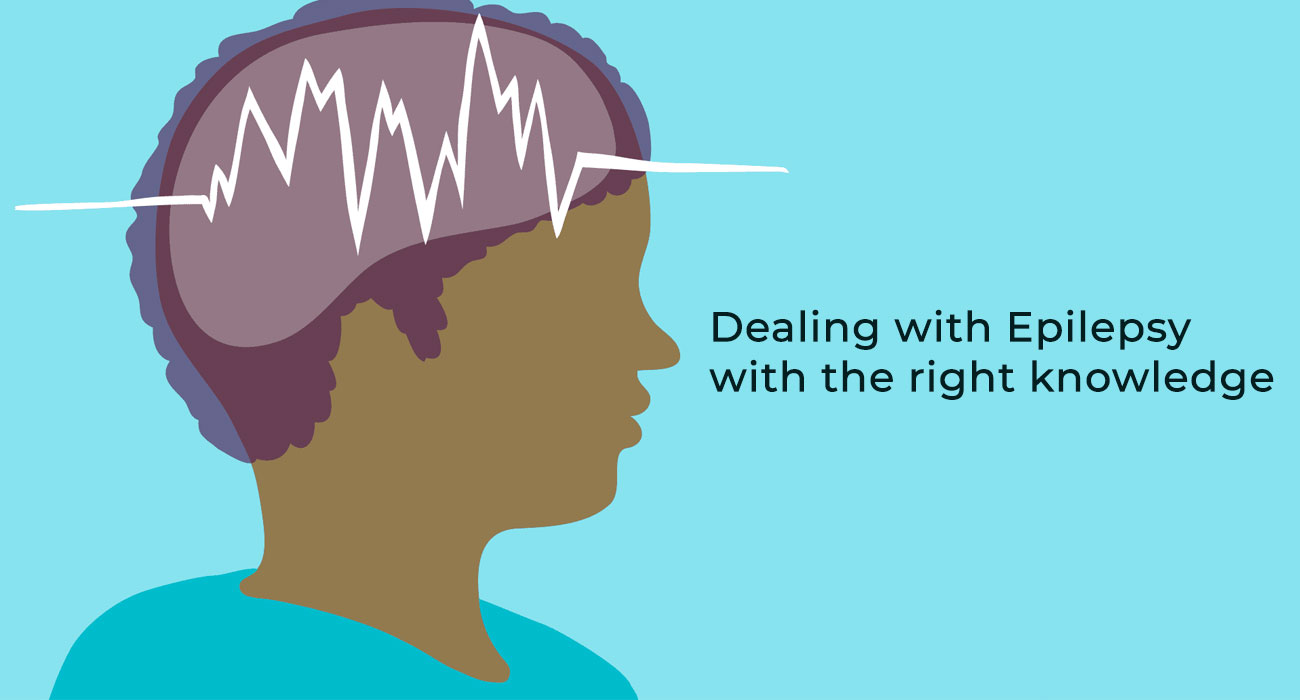Dealing With Epilepsy With The Right Knowledge
08/02/2021
Ever heard about epilepsy? It is a neurological disorder marked by a severe abnormality in the brain function that triggers seizures or periods of eccentric behaviour. The person may even experience loss of sensation and awareness occasionally. The problem is not age or gender-specific, which means that anyone can develop epilepsy at any age. Leading Neurosurgery hospitals in India offer facilities for the effective management of epilepsy with the aim of improving the quality of the patient’s life.
Doctors from the best hospital in Jaipur suggest that the symptoms of epilepsy may vary from one person to another. In fact, the seizures may also vary in terms of their intensity, span and how frequently these are experienced. Also, it is pertinent to understand that having a single seizure doesn’t necessarily mean that you have epilepsy. In fact, a minimum of two unprovoked seizures are important for diagnosing epilepsy. The good news is that proper medication and surgery can help to control seizures in the majority of the cases. Some patients might even require life long therapy and medication. Also, in the case of children, it is possible that they might outgrow the condition with time.
Symptoms that indicate Epilepsy
As mentioned earlier, the symptoms vary from one person to another. In fact, it is possible that a person with epilepsy will have different types of seizures in different instances. Here are a few signs that should not be ignored
- Temporary episodes of confusion
- A staring spell
- Involuntary jerking movements of the limbs
- Loss of consciousness or awareness
- Psychic symptoms that include fear, anxiety or Déjà vu
Understanding different types of seizures
Doctors from the best neurology hospital in Jaipur generally classify seizures into 2 categories – Focal seizures and Generalized seizures.
- Focal seizures – These originate from a particular part of the brain i.e. they have a focal point of origin. The symptoms of focal seizures are often mistaken for other neurological problems like migraine and narcolepsy. These are further classified as:
- Focal seizures without loss of consciousness – Also known as simple partial seizures, these are experienced while the person is in a conscious state i.e. these do not cause loss of consciousness. There may a temporary change in emotions and senses (smell, feel, vision etc). Spontaneous symptoms like dizziness and flashing light might also be seen.
- Focal seizures with impaired awareness – Also known as complex partial seizures, these involve the loss of consciousness or awareness. The person will stare into space and not respond to the environment. Repetitive movements of limbs or head are also seen.
- Generalized seizures – These originate from all the areas of the brain and have no specific focal point of origin. These are further classified into 6 types:
- Absence seizures– Earlier referred to as petit mal seizures, these are more likely to affect children. Common symptoms include staring into space and subtle body movements. There can be temporary loss of awareness as well.
- Tonic seizures – It is marked by sudden stiffening of the muscles in the limbs and back that often lead to loss of balance and control making you fall on the ground.
- Atonic seizures – Commonly known as drop seizures, cause a loss of muscle control, which may cause you to suddenly collapse or fall down.
- Clonic seizures – These are marked by recurrent and rhythmic jerking muscle movements. These seizures usually affect the neck, face and upper limbs.
- Myoclonic seizures – These are experienced as sudden jerks of the limbs.
- Tonic-clonic seizures – Earlier known as grand mal seizures, these are marked by a sudden loss of consciousness, stiffening of muscles, involuntary shaking, bladder incontinence and biting ofthe tongue.
It is very important to see a doctor and seek proper medical intervention in case:
- Your seizures last for more than five minutes.
- The person does not gain consciousness or is not able to even after the seizure stops.
- The seizuresoccur very frequently.
- You have a high fever or are experiencing heat exhaustion.
- You are expecting.
- You have high blood sugar or diabetes.
- You have suffered injuries during the seizure

